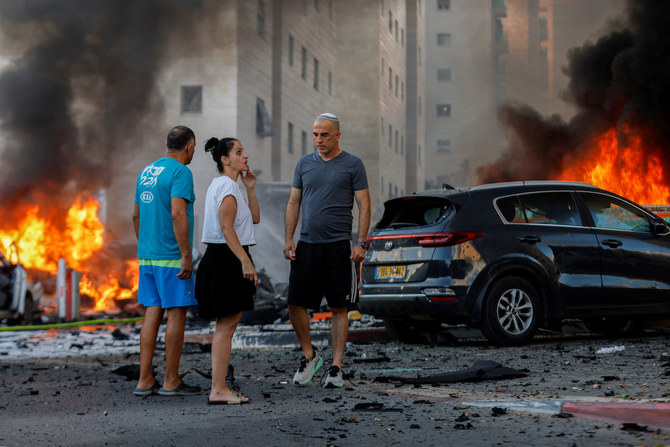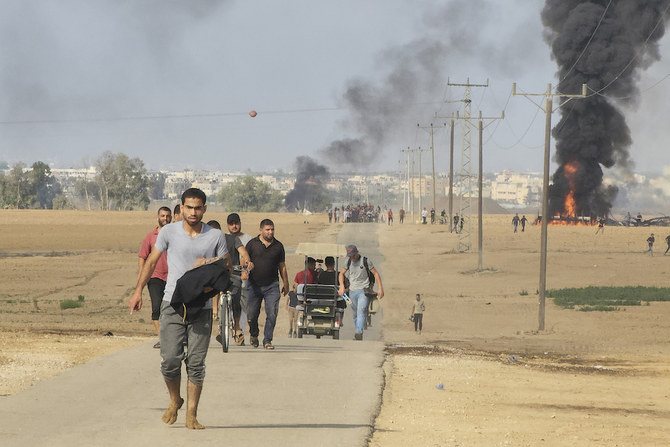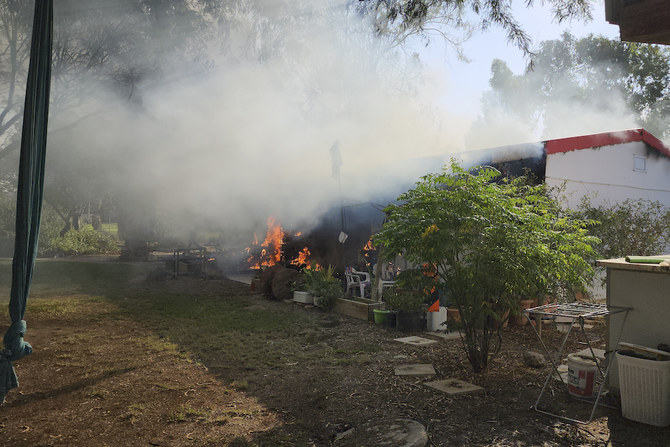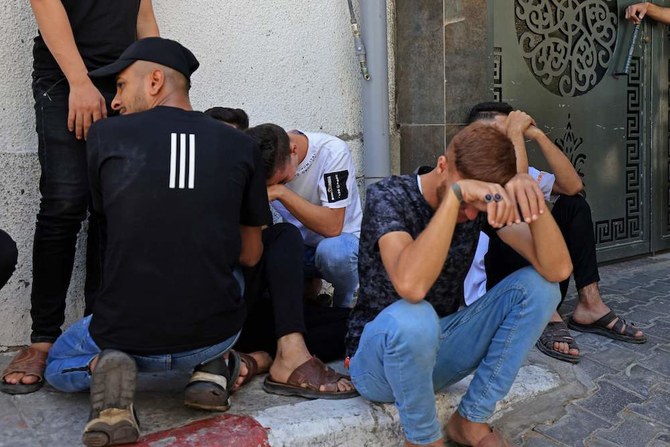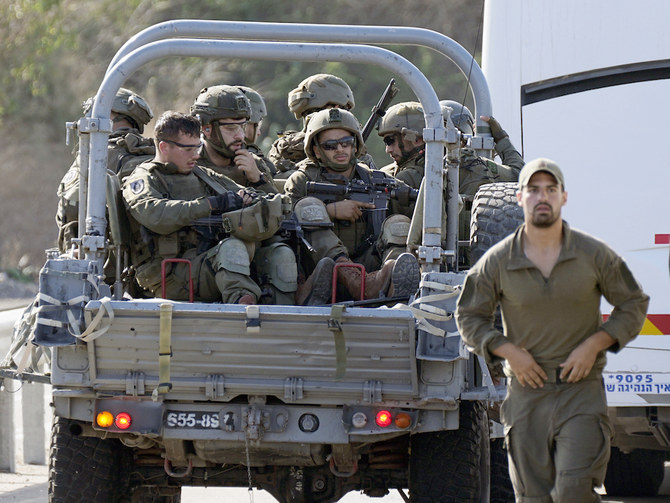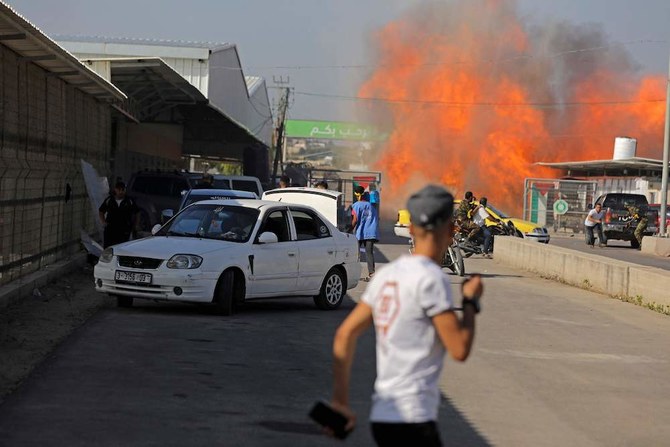JERUSALEM/GAZA: After weeks of escalating tensions along the Gaza-Israel border and deadly confrontations in the occupied West Bank of Palestine, Palestinian resistance factions in Gaza, primarily led by Hamas, declared today morning a full-scale military operation into the towns and settlements located along the separation fence with Gaza.
Military confrontations along the borders were ongoing Saturday evening, with an Israel response of airstrikes across the Gaza Strip on multiple residential neighbourhoods.
The latest barrage of rockets fired by Palestinian militants in Gaza Saturday evening has resulted in the collapse of a building in Tel Aviv, as reported by Israel's fire department according to Haaretz. The death toll among Palestinians has now reached 232, with 1,697 individuals wounded, including dozens in critical condition. The ongoing power cuts are anticipated to have severe health consequences, aggravated by the Israeli blockade and significant shortages of medical supplies.
An official report from the Palestinian news agency Wafa states that a complete power blackout has affected all regions of the besieged Gaza Strip. Israel's Energy Minister had previously announced plans to cut power to Gaza, a region that relies on Israel for about two-thirds of its electricity.
Mohamed Abu Silmiya, the director of Al-Shifa Hospital, has emphasized the critical situation faced by hospitals and medical facilities in the Gaza Strip due to Israel's power cuts. They are struggling to provide adequate care to the increasing number of casualties resulting from Israel's ongoing air assaults. Al-Shifa Hospital, the largest medical facility in the besieged enclave, is particularly strained as it receives the highest volume of casualties. The power outage has exacerbated the workload upon medical professionals working to treat the injured.
In a tragic development, Israeli forces have fatally shot a 13-year-old boy in the occupied West Bank city of Qalqilya, according to the Palestinian Health Ministry. In the occupied West Bank and East Jerusalem, Palestinian medics report that three individuals have been killed and over 30 wounded.
Additionally, it has been announced by the spokesperson of Hamas's military wing, Izz al-Din al-Qassam Brigades, that Palestinian fighters have captured "dozens" of Israeli soldiers and officers, and they are currently being held "in secure underground locations."
Netanyahu, as announced by his Likud party, has extended an invitation to opposition leaders Lapid and Gantz to collaborate in forming a unity government. Notably, Lapid had previously expressed his willingness to work alongside Netanyahu to demonstrate unity. Meanwhile, Gantz has indicated that he is considering this offer.
Furthermore, Israel has conducted airstrikes targeting multiple high-rise buildings in recent hours, with one of these strikes being captured on live coverage by Al Jazeera. The situation remains extremely volatile and fluid.
Meanwhile, at least 200 Israelis were killed in the Palestinian resistance attack, Israel’s ambulance service said. More than 1,100 Israelis had been wounded, the health ministry said, while dozens had been taken hostage, according to reports.
The attack marked an unprecedented infiltration into Israel by an unknown number of Hamas gunmen crossing from the Gaza Strip, and the heaviest blow for Israel in the conflict with Palestinians since the suicide bombings of the Second Intifada some two decades ago.
‘PLEASE SEND HELP’
Speaking to Israel N12 News by phone from Nir Oz, a kibbutz near Gaza, a woman identified as Dorin said militants had infiltrated her house and tried to open the bomb shelter where she was hiding.
“They just came in again, please send help,” she said. “There are a lot of homes harmed ... My husband is holding the door closed ... They are firing rounds of bullets.”
Israeli Defense Minister Gallant said “troops are fighting against the enemy at every location” and authorized the call-up of reservists.
Israeli media reported that gunmen had opened fire on passers-by in Sderot, and footage circulating on social media appeared to show clashes in city streets as well as gunmen in jeeps roaming the countryside.
“We were told there are terrorists inside the kibbutz, we can hear gunfire,” a young woman named Dvir, from Beeri Kibbutz, told Israeli Army Radio from her bomb shelter.
BACKDROP OF SURGING VIOLENCE
The escalation comes against a backdrop of surging violence between Israel and Palestinian militants in the West Bank, which together with the Gaza Strip is part of the territories where Palestinians have long sought to establish a state.
Hamas media displayed videos of what it said were bodies of Israeli soldiers brought into Gaza by fighters, and Palestinian gunmen inside Israeli homes and touring an Israeli town in jeeps reportedly been driven into Israel by the attackers.
Reuters was not immediately able to verify the footage.
Hamas media also circulated video footage apparently showing a destroyed Israeli tank.
In Gaza, the roar of rocket launches could be heard and residents reported armed clashes along the separation fence with Israel, near the southern town of Khan Younis, and said they had seen significant movement of armed fighters.
Palestinians in Gaza were bracing for Israel’s response.
“We are afraid,” Palestinian woman, Amal Abu Daqqa, said as she left her house in Khan Younis.
Others in Gaza expressed disbelief at the infiltration into Israel. “It is like a dream. I still can’t believe it,” said one Gaza shopkeeper.
The attack came a day after Israel marked the 50th anniversary of the 1973 war that brought the country to the verge of catastrophic defeat in a surprise attack by Syria and Egypt.
* With Agencies


